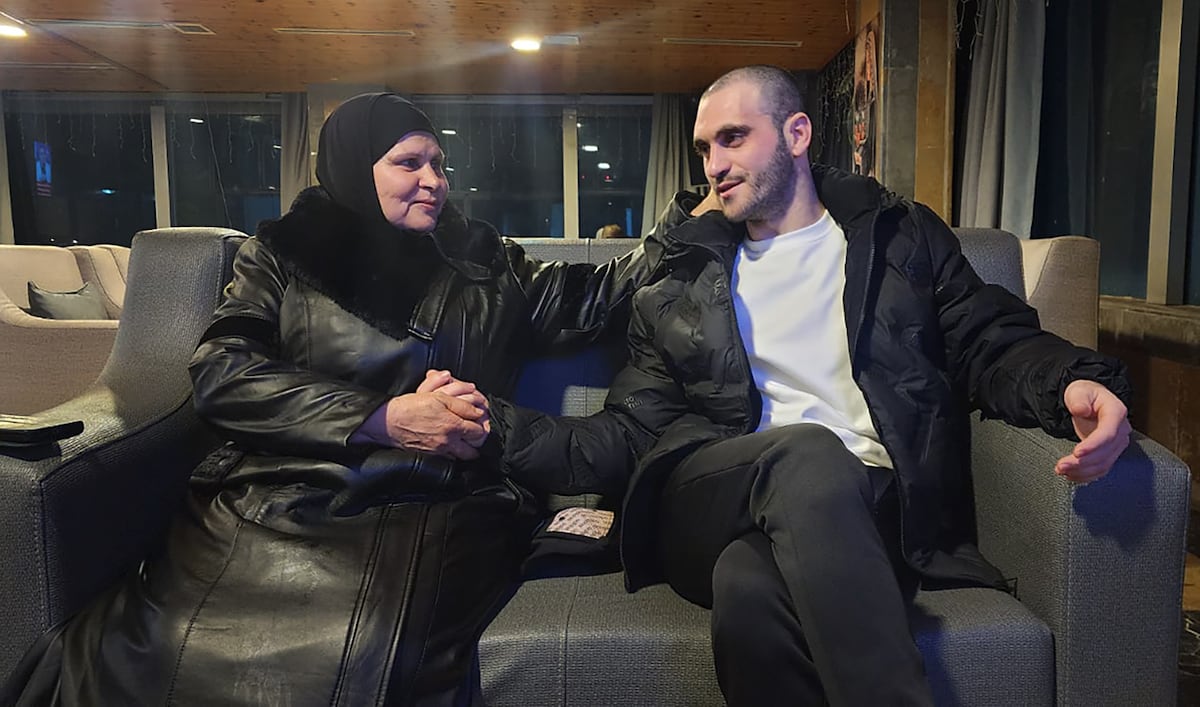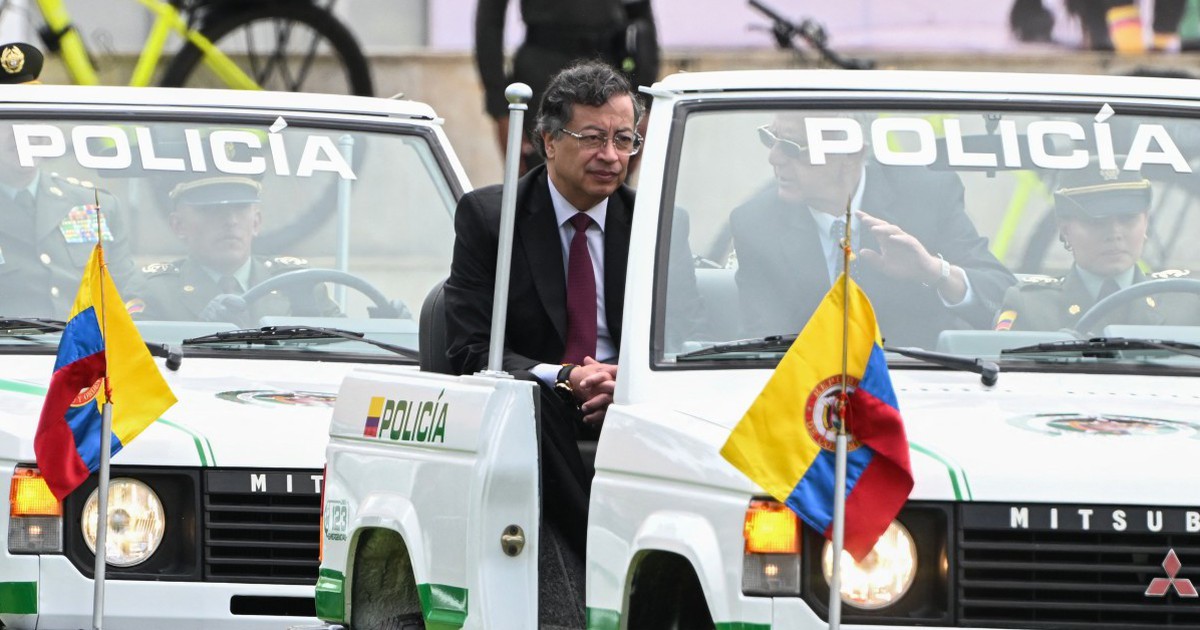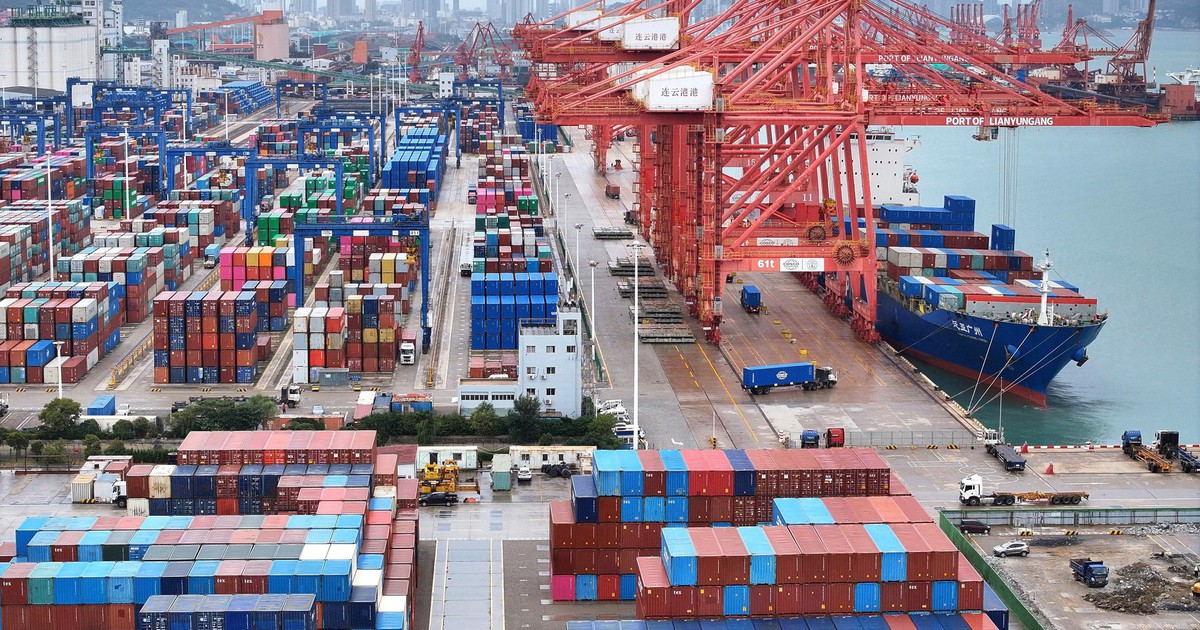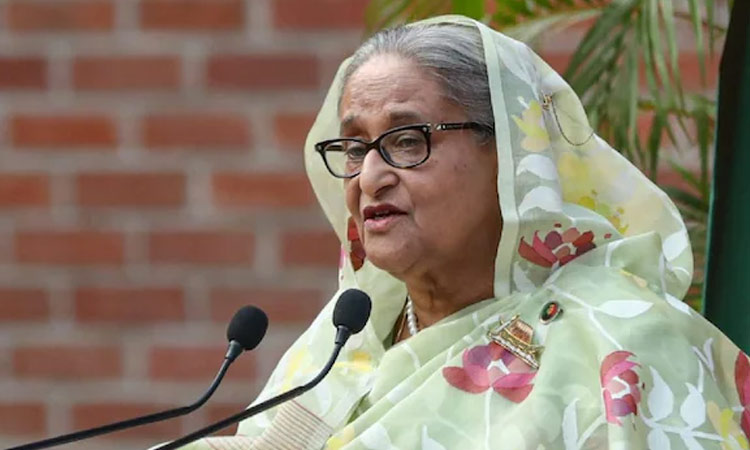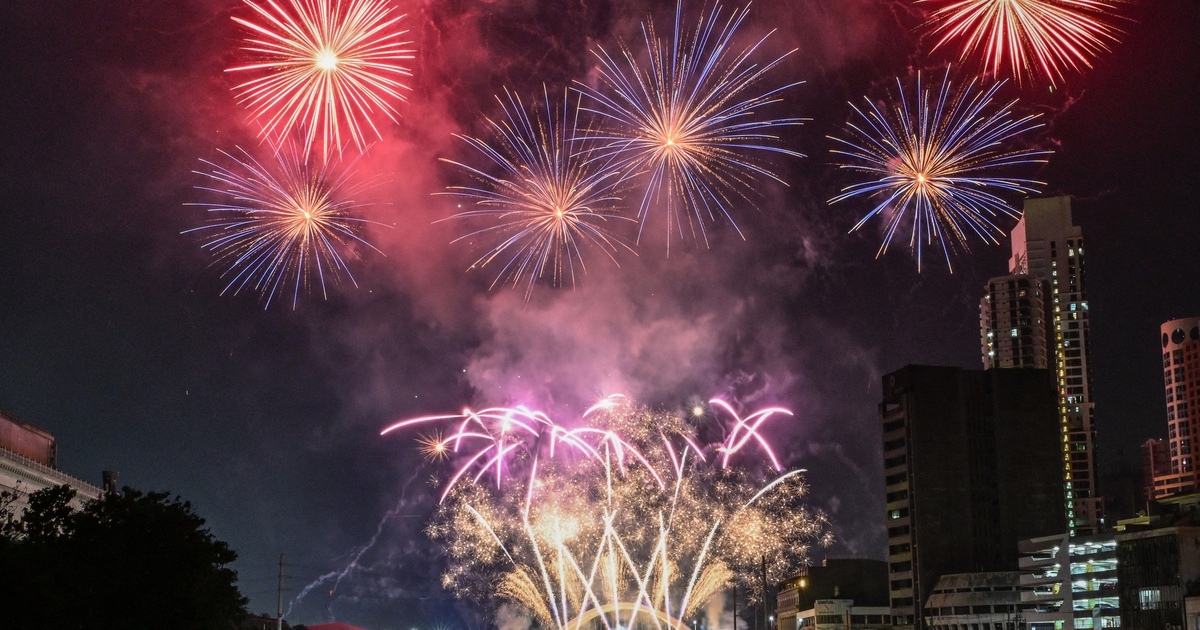Mahmud Bisharat’s parents did not arrive on time to Ramala to see how their son regained freedom after nine years between bars —13 before completing his penalty for the knife attack he committed in Israel – in the second exchange of Alto El Fuego el Fuego el Fuego El Fuego In Gaza. His name only appeared in number 62 of the final list of the 200 prisoners released in exchange for the Hamas of four Israeli soldiers, that same Saturday morning. That is, with the young Israeli towards a theatrical stage in Gaza and the buses for the prisoners parked in front of the prison of Offer.
In a straight line, 46 kilometers separate the Sports Center of Ramala, where the prisoners were received by an excited crowd, from the family home of the Bisharat in the town of Tammún, near the city of Tubas. But it took five hours, crossing three control stalls: the number of kilometers matters well in the West Bank, where hundreds of barriers to the movement (fixed or temporary seals, earth mounds, large stone blocks, lifted barriers …) convert each displacement into An odyssey. Moreover, since the beginning of the Alto El Fuego, in which Israel has increased seals, access and record closures, generating endless traffic jams, with people sleeping in vehicles after up to 10 hours without moving.
“My son arrived in Rameala before us. Normally, it is not difficult to enter here, but this time there were extra controls, ”says his father, Faisal, 60 years. It’s ten o’clock at night and five (the parents, Mahmud, their brother -in That the most radical settlers attack them along the way, says Faysal. So they have no choice but to do at night in a hotel in Ramela, instead of celebrating the first day of freedom in their town between hugs, fireworks and the meat of two cows they kept to sacrifice since the agreement of Alto El Fuego It was drawn on the horizon.
“Nothing happens,” the aforementioned takes iron, with exhausted face. “I am very tired and I don’t want to get sick right now of exhaustion. Only God knows how bad they have treated us until the last day. From 02.00 until they took us, we were 12 people in a three -meter cell per two, not counting what the bathroom occupied. ”
Bisharat is among the hundred of the 200 prisoners (with perpetual chains or long penalties, for blood crimes) that will remain in the West Bank. Another 70 were expelled to Gaza and Egypt, for their transfer to other countries.
He was 20 years old in 2015, when a mixture of hopelessness accumulated by the generation that was born after the Oslo agreements and the nth pico of tension due . More than 300 Palestinians, generally without affiliation to the armed factions, tried to stab to Israeli police and passers -by in three years.
One of them was Bisharat. He slipped from the Israeli city of Ranaana, near Tel Aviv, and wounded three people when stabbing them in front of a synagogue. Then he fled, tried to enter a house and ended up arrested. His conviction: 22 years in prison. In the interrogation he assured that he avenged the death of a relative.
Today weighs 25 kilos less. You can see comparing the photo of his face after the arrest that the authorities disseminated and the pale and thin with which the images of the welcome he received and says: “I still do not believe I am here” . His mother, Um Ramzi, 56, did not expect to hug him until 2037, so he is so happy (“I fainted when I saw his name on the list,” he admits) that he doesn’t matter to postpone the return to Tammún.
In Palestine, prisoners for crimes linked to the conflict with Israel (either publish a mere post in solidarity with Gaza or attempt against civilians) hold the category of heroes, so the waiters compensate for the family with delights as Maqlube of lamb, music either Knafe. Still confused for his recovered freedom, Bisharat pays more attention to his team’s game, Real Madrid, on giant television than food. “In jail I used to receive half tomato, so I don’t get so much,” justifies, before leaving the dish almost whole.
Dozens of new restrictions
In addition to the release, the high fire has hardened the lives of at least tens of thousands of Palestinians, for the increase in military controls, records to vehicles and closures in accesses to the Palestinian towns of the West Bank.
Israel militarily occupies this territory since it took it in the War of the six days of 1967, but only introduced an permissions system and a separation logic following the first intifada and the Oslo (1993) agreements and, above all, of the second intifada (2000-2005). In practice, a dual road system is first: some thought for the Palestinians, under military legislation; and others, for Israeli settlers, subject to civil law.
Since 2010, barriers to movement have only increased. The UN estimated them around 600 before October 2023, when Hamas’s surprise attack triggered Gaza’s invasion and fired violence in the West Bank, particularly settlers and soldiers (sometimes indistinguishable). Since then, every day brings two dead Palestinians and four colonists attacks, according to United Nations data.
Atasco hours
Since last week, you wait for control posts arrive at eight hours. Jericho’s departure, one of the most fluid, spent a day from 20 minutes to three hours. Last week, hundreds of people waited more than 10 hours in front of the control posts around the city of Nablus to return home.
In its last report, last Thursday, the United Nations Humanitarian Affairs Office (Ocha) accounts for “severe access restrictions throughout the West Bank” that “prevent the circulation of tens of thousands of Palestinians and your access to basic services and workplaces. ” The Ocha mentions the closure of control stalls in the main arteries, the barriers in the accesses to the peoples and the placement of new barricades and mounds of land, which prevent taking the – more long and in a worse state – secondary roads that many use as an alternative. The measures, he adds, have delayed the ambulance passage for hours.
Four months ago, the barriers to the Movement in the West Bank touched the 800, according to the Ocha. With the latest additions, the Palestinian National Authority (ANP) the figure almost 900. The main novelty is how they have spread to areas where mobility used to be less complicated, such as Ramala or Bethlehem. Tens of thousands of Palestinians cross every morning to work Israel or Jewish settlements and industrial areas. The morning of the first exchange, for example, the army closed the passage of Yaba. A row of vehicles was stuck between Ramala and Jerusalem until the afternoon of the next day.
Right to movement
“My right, the right of my wife and my children to move through Judea and Samaria (the biblical and official denomination in Israel of the West Bank) is more important than the freedom of movement of the Arabs,” he said in August 2023, before From the attack of Hamas, the then Minister of National Security, Itamar Ben Gvir, who resides in the settlement of Kiriat Arba, next to the city of Hebron and which is reached from Jerusalem in just one hour by a wide road. They are almost the same kilometers that separate branch from the Bisharat house. Israel defends seals inside the West Bank as essential to avoid attacks against its citizens.
The Israeli security cabinet approved to increase the controls during the high fire, with the argument that the release of the prisoners increased the risk of disturbances. According to the newspaper Haaretzthe high controls of the security forces were to measure, considering that it lacks real effect and even endangers some settlers, since sometimes they circulate along the same roads. They defended rather intense raids such as the one they made these days in the city of Yenin.
The closures are unexpected, so the Palestinians have WhatsApp groups to communicate which roads are open or offer support. “For those who go to the crossing of Qalandia, traffic has reached the roundabout and does not advance,” warns a user. “You can cross Ezariya in both directions without a police presence”, “All accesses to Hebron are closed in both directions”, “they have just opened the Ain Sinia barrier,” others warn. The youth of a village ask the neighbors, mattresses, food and water, and offer a house to whom they have been stranded. Meanwhile, the radio in Arabic La Voz de Palestina (the official station of the ANP) lists the main control positions, with the open or closed coletilla, as if it were the state of the roads or the weather forecast.

